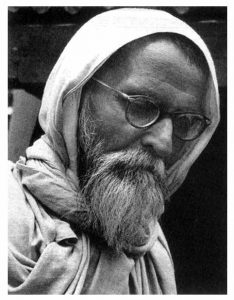In the ‘This Day in History’ segment, we bring you important events and personalities to aid your understanding of our country and her history. In today’s issue, we talk about Vinoba Bhave and his contributions for the IAS exam.
On 11 September 1895, Vinoba Bhave was born in Gagode village, Raigad, Maharashtra. A keen follower of Mahatma Gandhi, Vinoba Bhave took part in the freedom struggle and started the Bhoodan movement in 1951. He was an avid social reformer throughout his life.
| Visit the UPSC Previous Year Question Papers page to stay ahead of your competition!!
You can further improve your chances of cracking the UPSC Exam by checking the following links: |
Biography of Vinaba Bhave

- Born Vinayak Narahari Bhave to Narahari Rao and Rukmini Devi, Vinoba Bhave had a deep sense of spiritualism instilled in him at a very young age by his religious mother.
- He had read the Bhagavad Gita in his early years and was drawn towards spiritualism and asceticism despite being an academically good student.
- He learnt various regional languages and Sanskrit along with reading the scriptures.
- He read a newspaper report carrying Mahatma Gandhi’s speech at the newly founded Benaras Hindu University, and this inspired him so much that he burnt his school and college certificates while on his way to Bombay to take his intermediate examination.
- He exchanged letters with Gandhi before meeting him at the latter’s ashram in Ahmedabad in 1916.
- There, he quit his formal education and involved himself in teaching and various constructive programmes of Gandhi related to Khadi, education, sanitation, hygiene, etc.
- He also took part in nonviolent agitations against the British government, for which he was imprisoned.
- He was chosen by Gandhi as the first individual Satyagrahi in a nonviolent movement in the year 1940. After this event, the unknown Vinoba Bhave became known to the whole country.
- He worked towards eliminating social inequities. He started the Sarvodaya Movement which meant ‘Progress for all’.
- He also created the Brahma Vidya Mandir which was a small community of women enabling them to become self-sufficient.
- In 1951, Bhave started the Bhoodan Movement in Pochampally, Telangana.
- He authored several books and was well-versed in many languages including Marathi, Gujarati, Sanskrit, English, Urdu and Hindi.
- He was awarded the Roman Magsaysay Award for Community Leadership in 1958. In 1983, he received the Bharat Ratna posthumously.
- Vinoba Bhave died on 15 November 1982 due to a serious illness.
Learn about Post-Independent India’s land reform movements by visiting the linked article.
Aspirants can go through some relevant facts of the following personalities to prepare for their UPSC exam –
Facts about the Bhoodan Movement
- Bhoodan literally means a donation of land. As implied by the name, in this movement, landlords voluntarily give up land to be distributed to landless labourers, who would then cultivate the land.
- This is aimed at reducing the gap between the rich and the poor. Here, the land donors are not given any compensation.
- This was initiated by Vinoba Bhave in Pochampally.
- This movement went on for 13 years during which time Bhave travelled all over India. He collected 4.4 million acres of land to be distributed to landless farmers.
- In 1954, he started the Gramdan movement which involved the voluntary donation of whole villages.
- These movements attracted worldwide admiration for being stellar examples of voluntary social justice.
Vinoba Bhave – UPSC Notes:- Download PDF Here
To get more topics to visit the UPSC Syllabus and for more UPSC related preparation materials visit the linked articles:


Comments